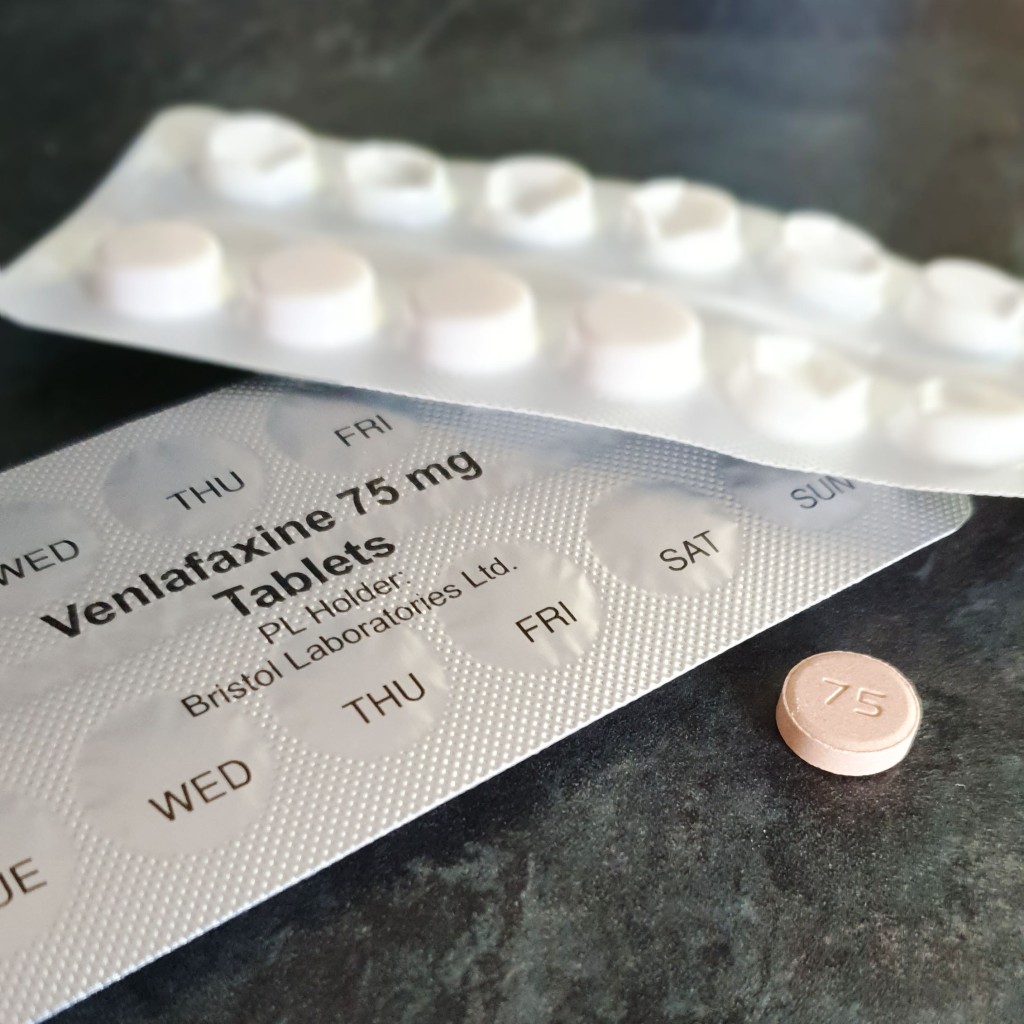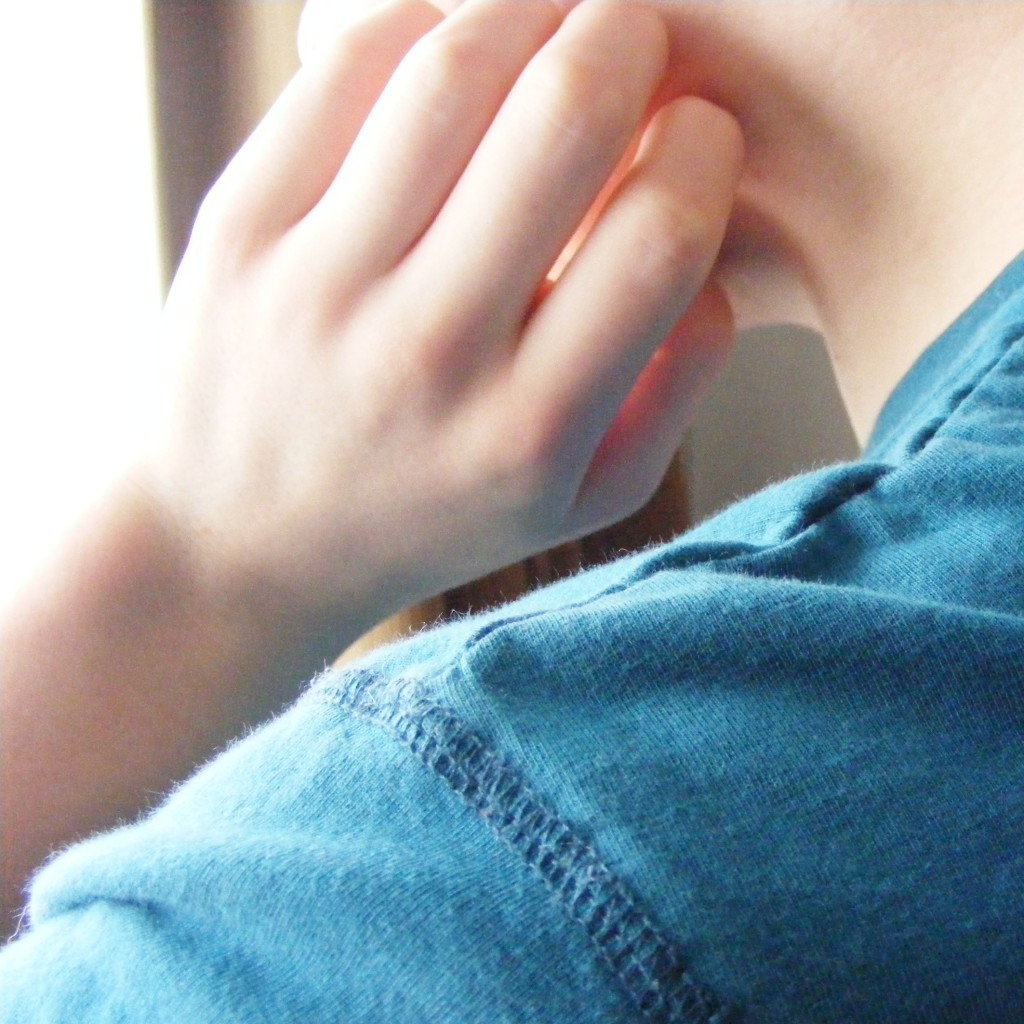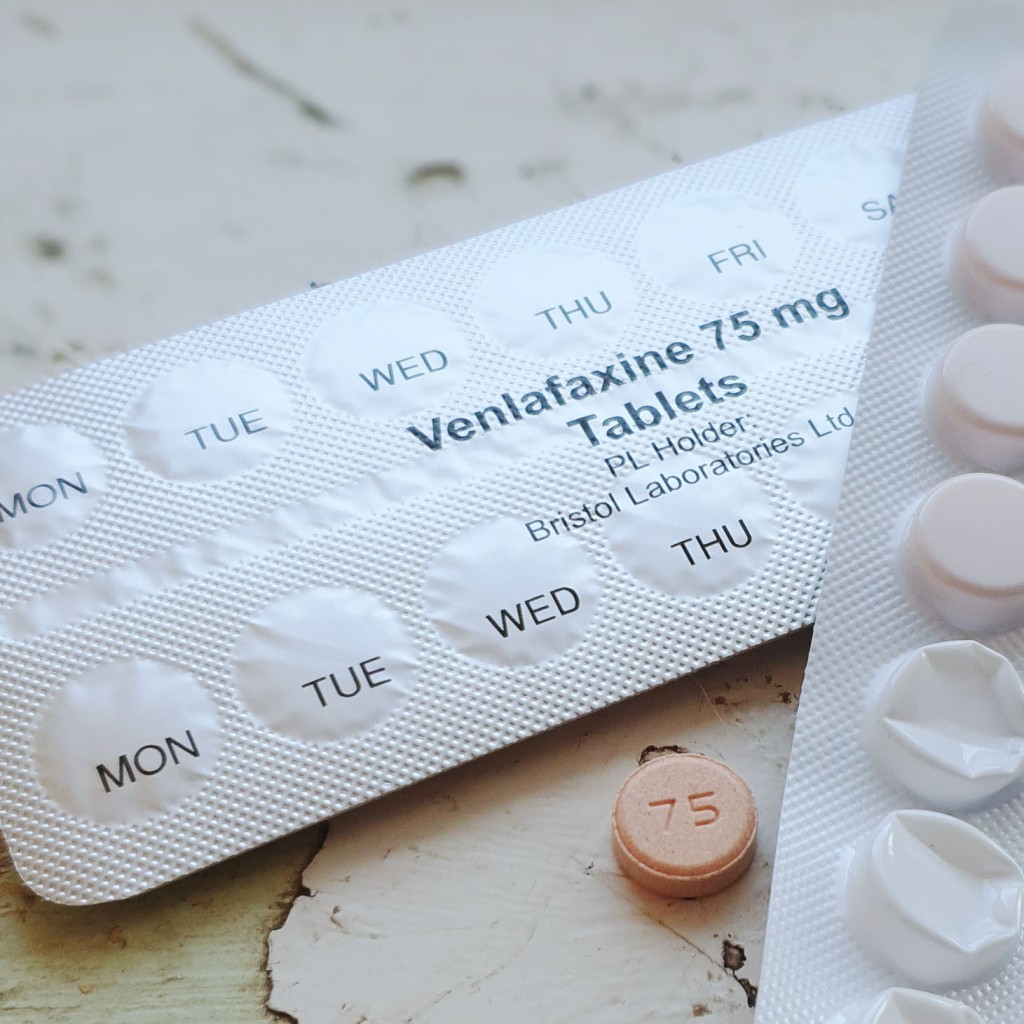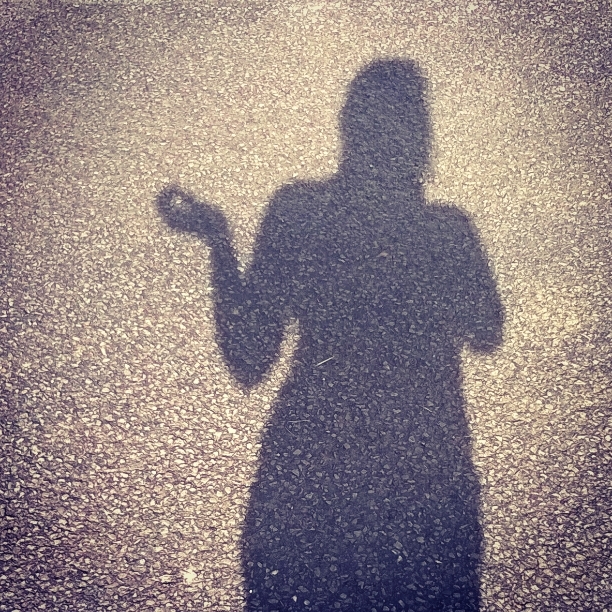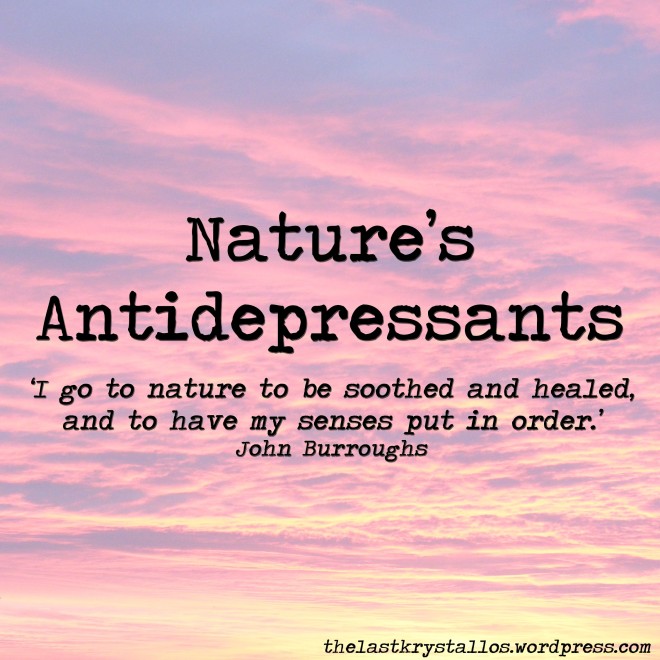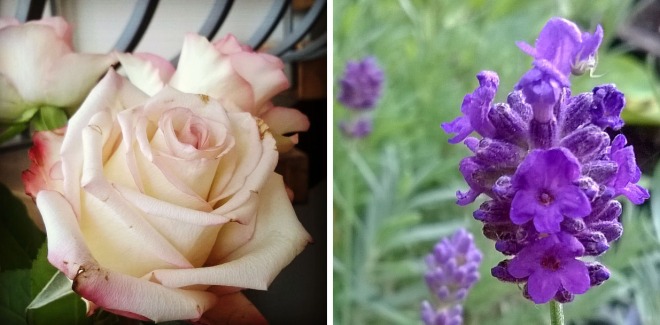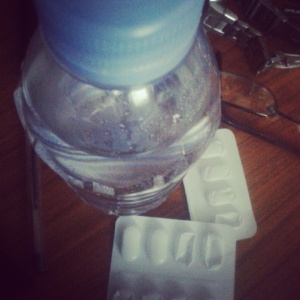Panorama shows the lack of available information on antidepressants
and it’s vital we become as informed as we can
to tackle the rise of depression in our society.
The recent BBCOne Panorama episode The Antidepressant Story was an interesting watch (you can find it on iPlayer). It told of the progress and changes in the antidepressant industry, and the secretive nature of the pharmacological companies producing them. Most of the information wasn’t a surprise to me as my Dad had been addicted to little blue pills, probably diazepam, which were prescribed for his debilitating arthritis when I was small. He had given them up cold turkey and gone through a horrific time resulting in him avoiding drugs, even paracetamol, for the rest of his life. I already understood that drugs forty or fifty years ago like Benzodiazepines, which had been prescribed for anxiety and other mental health issues, were highly addictive, but the pharmacological companies developing them tried to keep that fact hidden. They were times when antidepressants weren’t prescribed very often for fear of addiction. Then the new wave of SSRI’s (Selective serotonin reuptake inhibitors) came out, which currently include Fluoxetine, Paroxetine, Citalopram, Escitalopram, and Sertraline. These were not thought to be habit forming, as previous addictive medications were.
Panorama talked about a lack of trials regarding withdrawal and long term usage. The longer you are on an antidepressant the more at risk you are of a higher level of withdrawal symptoms when you cease to use them. Drug companies were and are well aware of the problematic withdrawal symptoms, but certainly in the 1990’s avoided clarifying this information. Professor Rosenbaum, on Panorama, followed his patients who were coming off a new drug Venlafaxine, to see what their withdrawal symptoms were (I didn’t catch the date of his research). He found that 78% of those who’d taken the drug for 8 weeks suffered some sort of withdrawal. Venlafaxine is a much newer antidepressant, of the SNRI (Serotonin and norepinephrine reuptake inhibitors) class, including Duloxetine and Venlafaxine, that were designed to be more effective than SSRI’s, though studies are debatable. Neither pharmacological companies nor the medical profession in that time were keen on withdrawal being focused on.
The programme concentrated deeply on the lack of information about withdrawal, despite all medical advice being that no antidepressant should be stopped quickly, and cessation should be in conjunction with your doctor. Panorama talked about people coming of antidepressants without understanding the withdrawal process or symptoms, and the lack of information from GP’s or prescribers.
Panorama noted that when patients used to come off antidepressants over a short period of time, just a few weeks, they almost always suffered symptoms that mirrored their previous depression, and they were put back on them, because they were often told they were relapsing.
I understand this because in my experience of trying to tackle my own chronic depression, diagnosed at age 18, I was pretty much only ever offered antidepressants as a solution. Very often doctors had a short consultation time with me, much taken up with me explaining how I felt, before offering antidepressants. There just wasn’t enough time to talk about the side effects of starting or finishing them. I was often told it would take a few weeks to get used to the drug and to come back in a month to see how they were working. The second consultation was usually just to be sure they were okay and leaving the course open to however long I needed them, with a precursor to go back when I wanted to come off them and to do it slowly. The early years of taking antidepressants meant going back to my GP, reducing the dose by about half for a couple of weeks, then half again, then finish a month or two later, so about three months to finish.
When Panorama noted that 2018 was the date when tapering became a public debate and the norm to come off antidepressants I was surprised because I’d always been advised to taper. I usually took 9 month courses, of which 3 months were tapering to stop them. It does, perhaps, demonstrate the issue of differing standards and knowledge amongst the medical profession. Though looking at the NHS Stopping or coming off antidepressants site, advising only 4 weeks or more, seems very ill advised and out dated. People interviewed on Panorama talked about taking years to withdraw safely.
The NHS site also is very vague about the symptoms of withdrawal, listing just a few, when I could list double that for several of my own withdrawals. It took until 2019 before some withdrawal side effects were accepted and included on the official side effects on medication leaflets.
Pharmacological companies making the pills also make withdrawal more difficult by only producing a few different sized doses, for example Venlafaxine, which I take, is available in 25 mg; 50 mg; 75 mg; 100 mg; 37.5 mg; 150 mg; 225 mg; 112.5 mg doses. But recommended advice for withdrawal is to reduce the dose by 10mg each time, which is impossible with these tablet or capsule sizes. They also say they recommend tablets to be taken whole and not cut in half or crushed. I’ve always cut my tablets to reduce dosage, in half and in quarters. These companies need to think more about how patients will come off these medications, but that’s unlikely because in general their only interest is getting people on them rather than off them.
Often people who are depressed will grab at anything that promises to help and to lift them out of their condition. As with all medication patients need to know the details, the benefits and the risks. We’ve all looked at the long folded paper-thin leaflet inside a box of medication – Patient Package Insert – Medication Guide – Instructions for Use – but how many people read it all, or read beyond the dosage requirements? Patients need to know full side effects of using or starting a drug, and they need to know how to come off them and if there is likely to be a withdrawal period and symptoms.
The programme showed that a substantial number of people have been and are badly let down regarding antidepressants and their side effects or withdrawal symptoms.
Current statistics, according to Panorama, say that 23% of women in England are taking antidepressants and more than 8 million people in England use them. They are prescribed for many conditions including chronic pain and OCD, and more than 2 million people have been taking them for five years or longer. Over 100 million prescriptions were written for antidepressants in the UK in 2021. 1 in 7 people take them, so it’s vital we understand the risks and side effects.
Panorama continued with questions regarding the effectiveness of antidepressants. Control studies and clinical trials have shown similar results of the effectiveness between antidepressants and placebos, some studies showing only a 15% difference between the two in favour of the actual drug. To me this shows an interesting correlation between psychosomatic results and active chemical ones. But this is because every person responds differently to treatment, some don’t respond to antidepressants and some have major improvements, there is not a one-size-fits-all. It is said that for adults with more severe depression antidepressants remain an important treatment and can be lifesaving. These days, Panorama tells us, doctors are not supposed to prescribe antidepressants for mild depression unless a patient requests them. However, the lack of availability for any other ready treatment leaves that down to the individual GP or prescriber. I tried for years to get counselling on the NHS without luck. I took private counselling, until recently when I did see NHS counsellors, but waiting lists for other mental health treatment are huge and frustrating.
During the last thirty-three years on and off antidepressants, I found I was prescribed antidepressants as a first choice. Even when I asked for counselling, or other options, antidepressants were the first port of call. I was prescribed Fluoxetine at 18 years-old, Escitalopram at 33, then Cipralex when I was 37 and Citalopram at 40. I was given Amytriptyline when I was 43 for anxiety and panic, and Sertraline when I was 45. I was prescribed Sertraline after a psychotic episode that I wasn’t sure I’d return home from. I tried to taper off after seven months without success. I continued taking this one for much longer than any other antidepressant I’d been on. I’d managed to take the others for six months then take three months to taper off them. I was offered Duloxetine some months after I came off Sertraline at 47, but it caused me excessive vomiting, so I decided to try without antidepressants while I waited for an Autism assessment.
At 50-years-old I was diagnosed as Autistic and finally understood much more of my own mental health history. It was mentioned by my assessor that many of my episodes of depression, diagnosed as Clinical Depression when I was 18, were more likely to be episodes of severe autistic overwhelm, burnout, and shutdown. These may well have been times when antidepressants may not have been appropriate. Each short term course I took made me feel like a zombie, sleeping a lot, closing me down, and numbing my mind and emotions. My children and family found it difficult to see me like that. I thought they were helping me, maybe they did, but maybe if I’d known I was autistic and allowed myself to unmask and be myself, I’d not have needed them. No medical professional ever looked further than depression, despite much of my symptoms being severe anxiety and panic, sensory sensitivities, and more rather than typical depression symptoms. Autistic people often find it difficult to put their feelings and thoughts into physical spoken words to describe their situation to a doctor.
I have recently, at 51, been prescribed Venlafaxine for anxiety and panic. I was drowning in catastrophising and intrusive thoughts. I can only describe myself as having been incredibly highly strung, going into overwhelm and panic very quickly, and spiralling into damaging catastrophising. I have been very aware of the risks of antidepressants, and each time I research the medication online and check out forums for peoples’ experiences with the specific drug. I took SSRI’s then the last two antidepressants I’ve been prescribed were SNRI’s. My research has also shown me that taking Venlafaxine is not an easy choice. It has a very short half-life, (the half-life is the period of time it takes for the drug to disappear from your system, which for Venlafaxine is about 20 hours) which means that withdrawal symptoms begin very quickly within 8 hours of missing a tablet, so I need to take it at the same time every day. I set an alarm. I am also aware that withdrawal from Venlafaxine will be a very serious undertaking. It will require tapering a very small amount regularly over a very long period of time, four weeks or so definitely won’t be sufficient.
I may be the oddity, I research a great deal into my medication, and much of this I know from online information, not from doctor’s advice. This does highlight very much the issues spoken of in the Panorama episode. There should be much more information put on the medication leaflet regarding side-effects as you start an antidepressant, the first few weeks can be hell starting a new one with lots of horrible side-effects – nausea, dizziness, tremors, weakness, sleep interruption, fixed eyes, flickering eyes, and disorientation. The same, if not worse, symptoms of withdrawal should also be listed and pointed out by a GP before you begin a course.
I am very lucky that Venlafaxine has been a blessing to me. My catastrophising and panic disappeared quickly, and I felt centred very fast after the initial 3 weeks of side-effects had passed. I feel much more normal, less anxious and jittery, and much more myself. I plan to remain on this antidepressant for the long term right now. However this is very much an educated decision with full knowledge of how to withdraw.
There should be no stigma with taking antidepressants, whether it’s for clinical depression, generalised anxiety disorder, for chronic pain, or for any other reason. There are many medical conditions where people will be on medications for a lifetime. We don’t know all the facts about long term antidepressants use, but until we have a much better idea, the pharmacological companies developing and making them should make sure they do trials, research, and keep us abreast of all the facts. GP’s and prescribers should be trained and well versed in all the appropriate facts to give us all the information we need to discern the right treatment for us.
Depression is ever growing in our society, for a number of reasons, it’s time to lift the stigma and understand treatment. There are many, many reasons for depression. Some is caused by societal and circumstantial events, some by chemical imbalance, and some by medication or illness. Life is harder than ever right now financially and emotionally for many people, and maybe our government should be looking at why and how they can help us become happier people, but until that happens we have to push through the best we can, and sometimes medication is the answer. Let’s be as informed as we can.
How have you coped with coming off a medication?
Did you get the right advice and information?
Could it be better?





